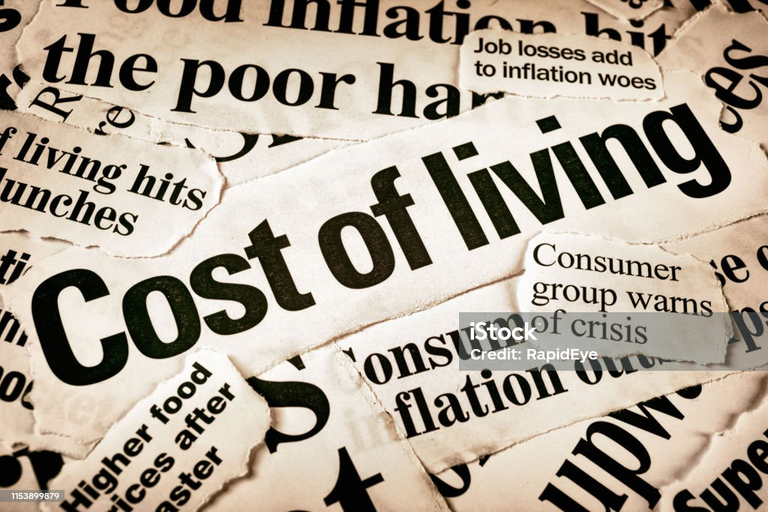Cost of living In developing Nations
The increasing cost for many everyday items and ware costs in emerging countries is fundamentally affecting individuals' lives. It is making it more challenging for individuals to manage the cost of fundamental necessities like food, fuel, and asylum. It is likewise prompting more significant levels of neediness and imbalance.
There are various variables adding to the increasing cost for many everyday items and product costs in agricultural countries. These include:
- The conflict in Ukraine: The conflict in Ukraine has upset worldwide food and energy supplies, prompting more exorbitant costs for these items.
- Environment change: Environmental change is causing more outrageous climate occasions, for example, dry spells and floods, which are disturbing horticultural creation and driving up food costs.
- Store network disruptions: The Coronavirus pandemic has upset worldwide stock chains, making it more costly to ship labor and products.
- Frail currencies: Many non-industrial nations have powerless monetary forms, which makes imports more costly.
The increasing cost for many everyday items and product costs is having various adverse consequences on agricultural countries, including:
- Expanded neediness and inequality: The increasing cost for many everyday items is making it more hard for individuals to manage the cost of essential necessities, which is prompting expanded destitution and disparity.
- Marked down monetary growth: The increasing cost for many everyday items and ware costs is lessening buyers' buying power and making it more hard for organizations to work. This is prompting more slow financial development.
- Expanded social unrest: The increasing cost for most everyday items and ware costs can prompt social agitation, as individuals battle to get by.
There are various ways that non-industrial countries can fix the issues brought about by the increasing cost for most everyday items and ware costs. These include:
- Giving social wellbeing nets: Legislatures can give social security nets, for example, cash moves and food endowments to assist the most unfortunate and most weak individuals with adapting to the increasing cost for many everyday items.
- Putting resources into agriculture: States can put resources into farming to increment homegrown food creation and diminish dependence on imports.
- Differentiating economies: States can expand their economies to lessen dependence on item sends out.
- Advancing territorial integration: Legislatures can elevate provincial incorporation to help exchange and financial development.
It is critical to take note of that there is nobody size-fits-all answer for the increasing cost for most everyday items and product costs in emerging countries. The best methodology will fluctuate contingent upon the particular conditions of every country.
Not with standing the above measures, emerging countries can like wise look for worldwide help to assist them with adapting to the increasing cost for most everyday items and product costs. Global associations, for example, the World Bank and the Global Money related Asset can give monetary help and specialized help.

Congratulations @quick-cycle! You have completed the following achievement on the Hive blockchain And have been rewarded with New badge(s)
Your next target is to reach 8000 upvotes.
You can view your badges on your board and compare yourself to others in the Ranking
If you no longer want to receive notifications, reply to this comment with the word
STOP